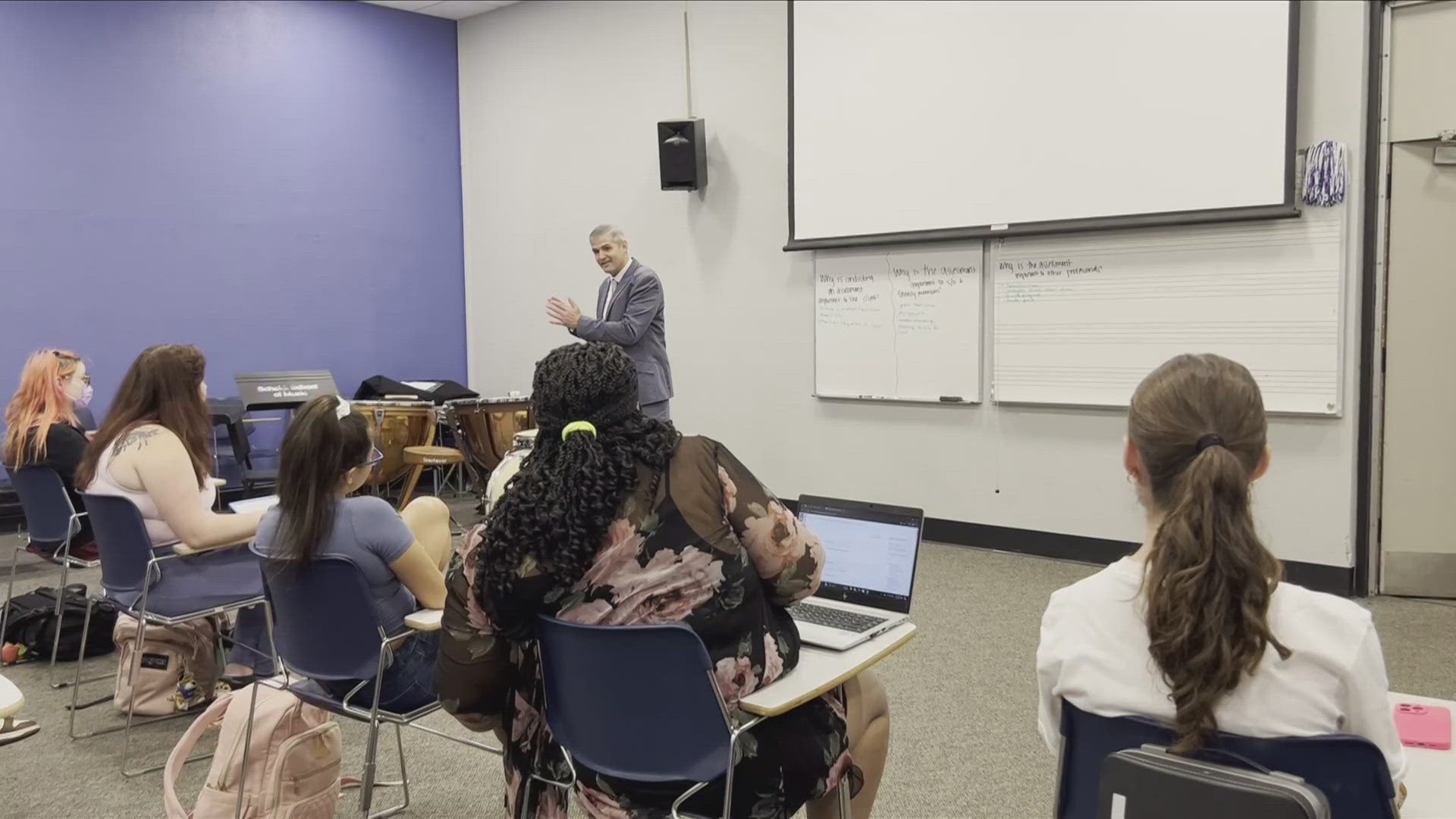MEMPHIS, Tenn — A new University of Memphis program is aiming to help treat mental health issues like depression and create a bridge between the arts and healthcare.
“Memphis is, of course, world renowned for its music,” said James Pierce, a U of M music therapy assistant professor. “And it automatically kind of opens doors that other areas may not.”
The music therapy program at the university was accredited by both the National Association of Schools of Music and the American Music Therapy Association. Now, the university says it is an area leader for music therapy and research as a whole.
By graduating the program, students will become board certified music therapists, entering into a growing career field in psychiatric hospitals, rehabilitative facilities, medical hospitals, outpatient clinics, schools and private practice. The field itself has been growing over the course of years and is poised to grow up to 15% by 2029.
According to a recent study, music has proven to be an affective tool for addressing depression symptoms. It found higher enjoyment of the music increased a greater activity in a person's reward circuit, especially if the person was familiar with the music.
“Music therapy has the opportunity to influence the brain chemistry and provide relief to many areas and have a significant, positive impact,” Pierce said.
While not a replacement for treatment overall, Pierce said music therapy has a significant impact on certain chemicals in the brain like dopamine, serotonin and cortisol. This helps affect a person's pleasure, mood and stress respectively.
A lot of the music therapy sessions at the U of M are typically done in groups in order to prove someone is not alone. The process, according to Pierce, is very intimate, where participants often get involved, play along and write lyrics based on their thoughts, all to help address new ways or thoughts about their experience.
“We might talk about the lyrics, we might talk about the music, but then move from the music to the individual," Pierce said. "...Maybe we ask them other alternatives to maybe refrain or change the way they’re approaching this situation."

